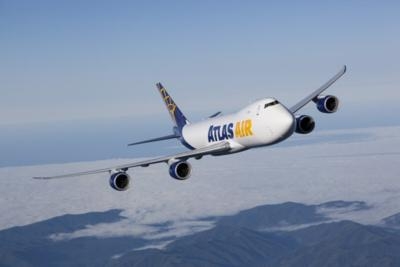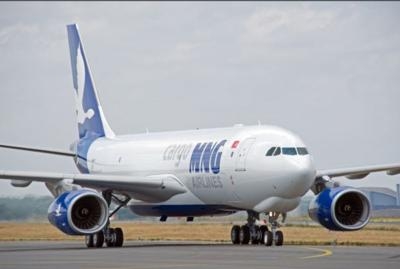Capacity Has Outpaced Demand For The Past 12 Months
The International Air Transport Association (IATA) has released data for global air freight markets showing that demand, measured in freight tonne kilometers (FTKs), fell 4.7% in April 2019, compared to the same period the year before. This continued the negative trend in year-on-year demand that began in January.

Freight capacity, measured in available freight tonne kilometers (AFTKs), grew by 2.6% year-on-year in April 2019. Capacity growth has now outpaced that of demand for the last 12 months. Air cargo volumes have been volatile in 2019, due to the timing of Chinese New Year and Easter, but the trend is clearly downwards, with volumes around 3% below the August 2018 peak.
Brexit-related trade uncertainty in Europe and trade tensions between the US and China, have contributed to declining new export orders. In month-on-month terms, export orders have increased only three times in the past 15 months and the global measure has been indicating negative export demand since September. The continued weakness is likely to lead to further subdued annual FTK growth in coming months.
“April saw a sharp decline in air cargo growth and the trend is clearly negative this year. Cost inputs are rising, trade tensions are affecting confidence, and global trade is weakening. Airlines are adjusting their capacity growth to try and fall into line with the dip in global trade since the end of 2018. It all adds up to a challenging year ahead for the cargo business. Governments should respond by easing trade barriers in order to drive economic activity,” said Alexandre de Juniac, IATA's Director General and CEO.
Asia-Pacific, Europe and Middle East suffered sharp declines, while Africa, Latin America and North America experienced modest increases in growth in April 2019.

Asia-Pacific airlines saw demand for air freight contract by 7.4% in April 2019, compared to the same period in 2018. This was the sixth consecutive month of falling demand in the region, where international volumes are down 8.1% compared with the level of a year ago. As the world’s main manufacturing and assembly hub, the latest round of US tariffs is likely to negatively impact sentiment and activity in the region further. Capacity fell 0.1%.
- North American airlines saw demand increase by 0.1% in April 2019, compared to the same period a year earlier. International FTKs, however, fell 0.8%. Despite solid domestic economic performance, global headwinds are likely to impact air freight outcomes in the coming months, especially with the recent escalation in US-China trade tensions. Capacity increased by 2.5% over the past year.
- European airlines posted a sharp 6.2% decrease in freight demand in April 2019 compared to the same period a year earlier. Weakness in German export orders, along with subdued economic growth and the ongoing lack of clarity around Brexit are all factors weighing upon air freight outcomes. Capacity increased by 4.2% year-on-year.
- Middle Eastern airlines’ freight volumes decreased 6.2% in April 2019 compared to the year-ago period. Capacity increased by 0.7%. Air freight volumes have been declining since the fourth quarter of 2018. Freight volumes to and from Europe and Asia Pacific are growing, but a double-digit decline for the key North America market highlights some of the issues facing the region’s carriers.
- Latin American airlines experienced an increase in freight demand growth in April 2019 of 5.0% compared to the same period last year—a third consecutive month of positive FTK growth. Future growth in the region will be heavily influenced by the health of the Brazilian economy. Capacity increased by 18.7%.
- African carriers posted growth in April 2019 of 4.4% compared to the same period a year earlier. The strong FTK growth in late 2016 and into 2017 has been only partly unwound, and international FTKs for African carriers are still more than 30% higher than their level of three years ago. Capacity grew 12.6% year-on-year.
(Source: IATA news release. Images from file)
 ANN's Daily Aero-Term (04.26.24): DETRESFA (Distress Phrase)
ANN's Daily Aero-Term (04.26.24): DETRESFA (Distress Phrase) ANN's Daily Aero-Linx (04.26.24)
ANN's Daily Aero-Linx (04.26.24) Airborne 04.22.24: Rotor X Worsens, Airport Fees 4 FNB?, USMC Drone Pilot
Airborne 04.22.24: Rotor X Worsens, Airport Fees 4 FNB?, USMC Drone Pilot Airborne 04.24.24: INTEGRAL E, Elixir USA, M700 RVSM
Airborne 04.24.24: INTEGRAL E, Elixir USA, M700 RVSM Airborne-NextGen 04.23.24: UAVOS UVH 170, magni650 Engine, World eVTOL Directory
Airborne-NextGen 04.23.24: UAVOS UVH 170, magni650 Engine, World eVTOL Directory




